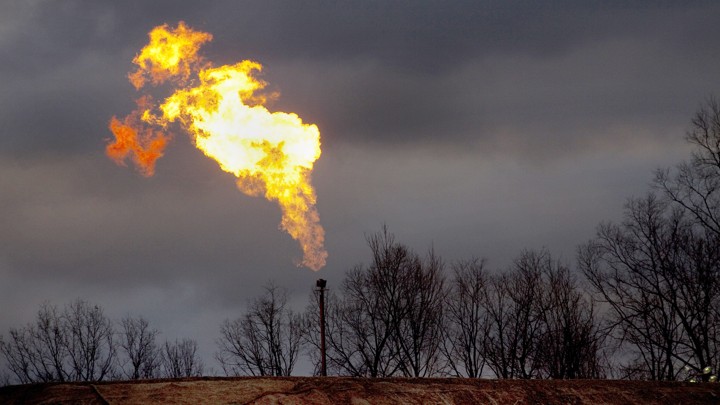By Gary McDonald
The potential for the Irish state to allow for the importation of LNG (Liquefied Natural Gas) into Ireland through the Shannon and Cork Harbour LNG project is a clear indication that the Irish government has no real intention of curbing Ireland’s carbon emissions output in order to save humanity from a complete catastrophe.
Leo Varadkar at the recent UN Climate Action Summit in 2019 shockingly described natural gas as a transitional fuel to renewable energy. The mass media at the behest of the fossil fuel industry’s mighty dollar have also been peddling this narrative of LNG being a ‘clean alternative’ to other fossil fuels such as coal and oil. Any notion of LNG being a clean alternative or a transitional fuel is absolute insanity and flies starkly in the face of all the available science.
Massive dangers
LNG is the incredibly dangerous fracked gas, cooled and filtered to produce a compressed liquid form that is a more transportable product. The dangers of fracking are well known at this stage, having already produced devastating ecological disasters across the US where fracking has been kicked into high gear on a mass industrialised scale.
LNG is composed of the extremely potent greenhouse gas methane which traps over 86 times more heat than CO2 when released into the atmosphere. The expansion of this industry must be vehemently opposed in order to reduce carbon emissions and to prevent a rapid heating of the planet which would have dire consequences.
Fossil fuel industry
The dangers of LNG are also immediate. Already multiple LNG tanker trucks have exploded worldwide claiming lives while causing serious damage. Spills from LNG tanker ships have the potential to produce much larger and devastating explosions. They are considered to be even more dangerous than oil tankers. It is beyond hypocritical to claim to be tackling climate change while promoting this industry – it is criminally dangerous.
The only viable option to prevent a planet-wide climate catastrophe is by leaving the fossil fuels in the ground. This cannot be achieved under the profit-driven capitalist mode of production where power is concentrated into the hands of a tiny wealthy elite. These few capitalists are generating obscene profits at the expense of the rest of us and will continue to do so unless their power is challenged from below.
Systemic problem
Big tech companies Amazon, Google and Microsoft are partnering with the fossil fuel industry in order to more efficiently extract gas and oil while banks are continuing to pour cash into the industry despite the catastrophic ramifications of doing so.
This demonstrates how systemic the climate crisis is to capitalism. Capitalism has caused this crisis, it continues to further it and all evidence proves that it will only worsen the crisis unless this system is dismantled. Carbon emissions continue to skyrocket year on year leading us ever closer to the cliff edge.
Climate scientists insist that we still have time to act in order to prevent the worst effects of climate change but we must do so as soon as possible. These industries & other key aspects of the economy must be taken into democratic public ownership, to be run in the interests of the majority so that we can begin a just and equitable transition to renewable energy. To achieve this, we must break with capitalism.












